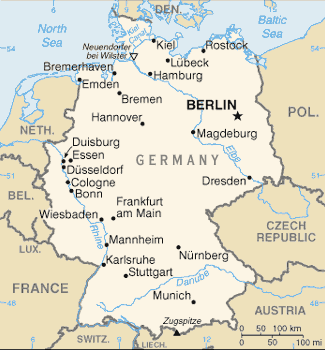In 1999, in the Southwestern German state of Baden-Württemberg, a Muslim teacher of Afghan origin was denied a state teaching position due to her insistence on wearing a headscarf in the classroom. This provoked a legal battle, resolved for a time in September 2003, when Germany’s highest constitutional court decided that the headscarf was permissible since there were no specific laws against it. In response to the ruling, several German states — starting with Baden-Württemberg, and later the country’s city-state capital of Berlin — raced to pass laws banning headscarves in the classroom and other public settings and occupations. In the ensuing national debate, opponents of headscarves argued that the religious attire violated children’s right to a religiously neutral education, and that the headscarf’s symbolism extended beyond religion to include political Islam and the denial of women’s rights. Those supporting the option of wearing headscarves responded that the ban was a denial of both women’s rights and the freedom of religious expression. As of June 2004, a federal appellate court in Leipzig, Germany has upheld the state bans. However, some opponents of the bans see a weakness in that these laws differ from state to state: Some ban only headscarves while allowing Christian symbols, while others ban overt religious attire more consistently across many faiths. Meanwhile, Muslim groups have vowed to fight these and other battles to the level of the German high court. At least one other case has been resolved in their favor: A Turkish woman in a small town east of Frankfurt was fired for wearing a headscarf to work at a grocery store. The store’s owners claimed her appearance would hurt business and present an image they did not wish to convey to customers, but the court disagreed, finding that she was wrongfully fired.
August 26th, 2004
Young, Muslim, and French
Headscarf Headlines Around the World: Germany
- Introduction
- Afghanistan
- Australia
- Austria
- Egypt
- France
- Germany
- Iran
- Iraq
- Italy
- Malaysia
- Morocco
- Nigeria
- Qatar
- Saudi Arabia
- Somalia
- Sweden
- Tunisia
- Turkey
- Turkmenistan
- United Kingdom
- United States of America


